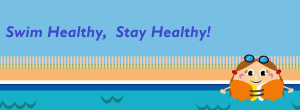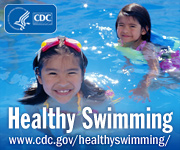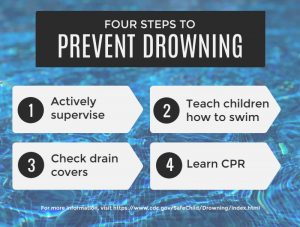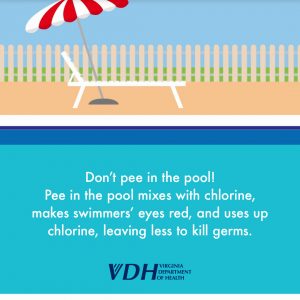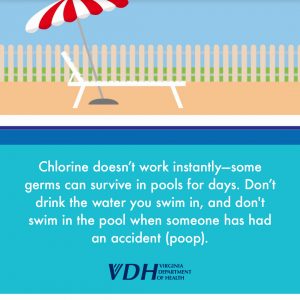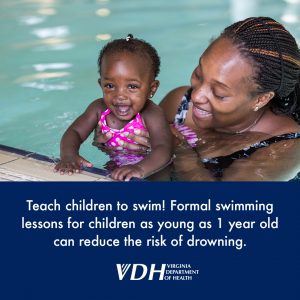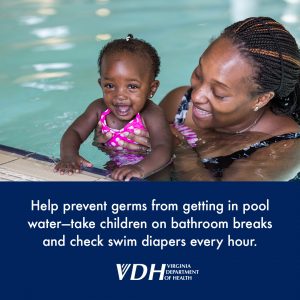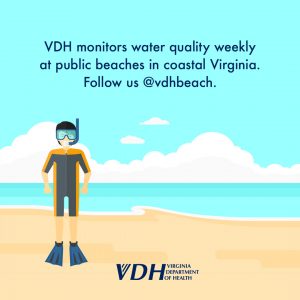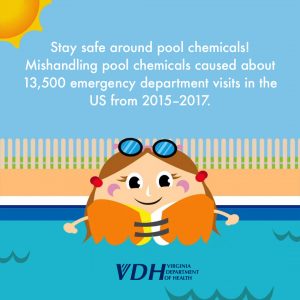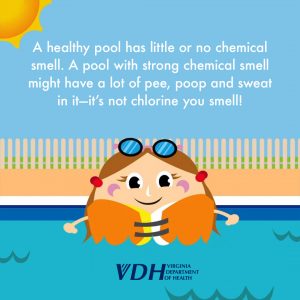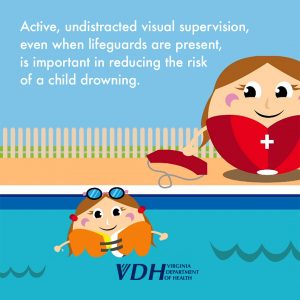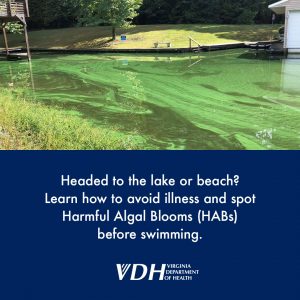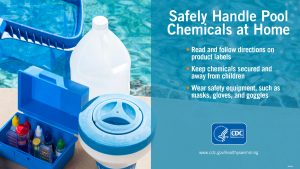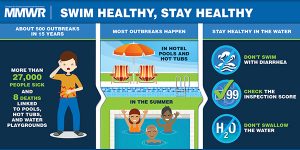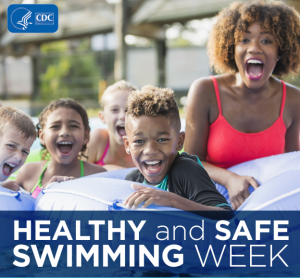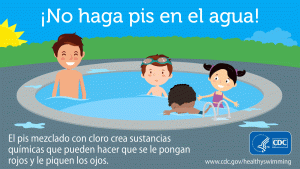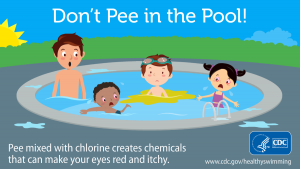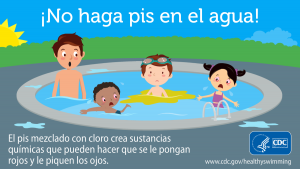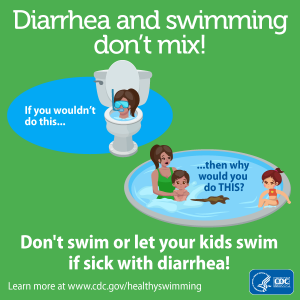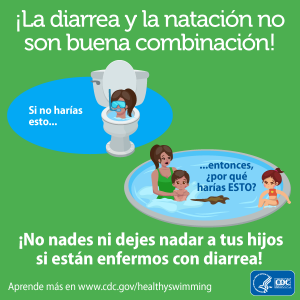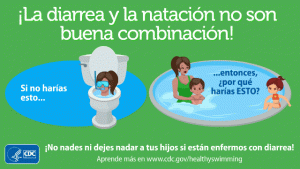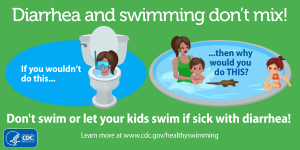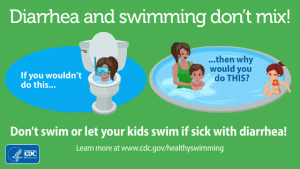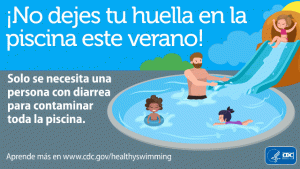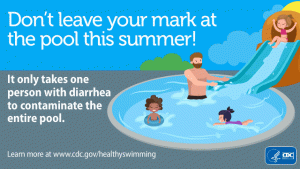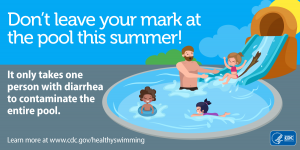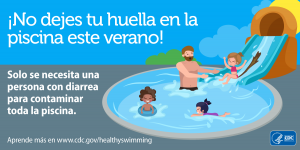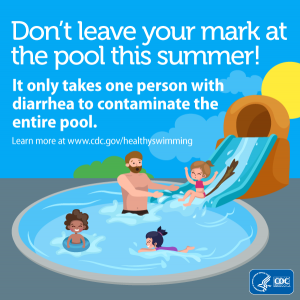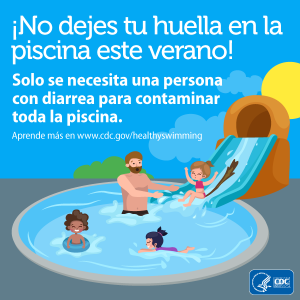PDFs and PowerPoints
Virginia HSSW Resources List (pdf)
Healthy & Safe Swimming Week Talking Points
HSSW 2023 General Imagery PDF (slides)
HSSW 2023 General Imagery PPT (slide)
Harmful Algal Bloom PDF (slide)
Harmful Algal Bloom PPT (slide)
Clean it up Swimmers – CDC Infographic
Don’t Swallow Pool Water v1 – CDC
Don’t Swallow Pool Water v2 – CDC
Take Frequent Bathroom Breaks – CDC
For the Kids! Healthy & Safe Swimming Pledge
Social Media Blurbs
Hashtag: #SwimHealthyVA
Website: SwimHealthyVA.com
General
It’s Healthy and Safe Swimming Week, learn more at SwimHealthyVA.com
VDH monitors water quality weekly at public beaches in coastal Virginia. Follow us to receive alerts: twitter.com/vdhbeach
Don’t swallow the water you swim in! 1 mouthful of water w/germs can make you sick for 2-3 weeks
Diarrhea & swimming don’t mix! Don’t swim or let your kids swim when sick with diarrhea
Germs in the places we swim can cause skin, ear, respiratory, eye, neurologic, and wound infections. Learn more at SwimHealthyVA.com
Splash Pad Safety
Splash pad jets can rinse germs found in poop off of bottoms. Don’t allow children to sit or stand on jets.
Don’t swallow splash pad water! Swallowing water with germs can cause diarrhea or vomiting.
Stay out of splash pads if you are sick with diarrhea. Jets can rinse germs found in poop off bottoms. Swallowing the water with germs can make you sick. Chlorine doesn’t kill germs instantly!
Check diapers and take bathroom breaks every hour at splash pads. When pee and poop mix with the water, they use up chlorine needed to kill germs.
Pool Safety
Don’t let kids run around the pool. The ground can be slippery, and falling on concrete can cause injury.
Chlorine doesn’t work instantly—some germs can survive in pools for days. Don’t drink the water you swim in!
Properly maintain pools and spas to control the growth of Legionella bacteria, which can cause severe respiratory infections
Help prevent germs from getting in pool water – take children on bathroom breaks and check swim diapers every hour
Natural Waters
Swim safe! Don’t dive or jump in creeks and ponds you don’t know. Hidden rocks and snags can injure you.
Water’s up? Don’t swim. Rainwater can cause sewer overflows and wash animal waste into rivers, and the germs could make you sick. Stay out a few days.
Be especially careful when swimming with children in natural waters. Murky water and unexpected drop-offs can increase the risk of drowning.
Watch out for riptides and strong currents at the beach, especially after stormy weather.
Don’t swim in rivers with strong currents and near dams. You could get pinned under the water. Choose calm areas to swim.
Dead animals are a sign of possible harmful algae blooms. Don’t swim where you see them.
Even crystal clear lakes and rivers can have germs. Don’t get water in your mouth while swimming.
Natural waters can have unexpected hazards! Never swim alone.
Headed to the lake or beach this summer? Learn tips for spotting harmful algal blooms SwimHealthyVA.com
Swimming in water with harmful algal blooms can cause illness. Learn more before swimming this summer SwimHealthyVA.com
Limiting water going up the nose when swimming can help prevent infection from the amoeba Naegleria fowleri.
Drowning & Injury Prevention
Drowning is a leading cause of death among Virginia’s children 1 to 4 years old. Always supervise children when they are around water.
From 2016-2020, 32% of drowning-related hospitalizations in Virginia were children aged 0-4 years. Always supervise children when they are around water.
Almost 1 out of 2 (48%) hospitalizations among Virginia children aged 0-4 years from 2016-2020 were due to drowning in swimming pools. Always supervise children when they are around water.
Every four days, one Virginia resident dies by drowning. Wearing a US Coast Guard approved flotation device while swimming could save your life.
On average from 2016-2020 in Virginia, about one out of 10 deaths by drowning were swimming pool-related.
Don’t drink and swim. Alcohol slows your reactions and can make you make bad decisions. Stay out of the water if you’ve been drinking.
Never swim alone. If an accident happens, having a friend with you could save your life.


